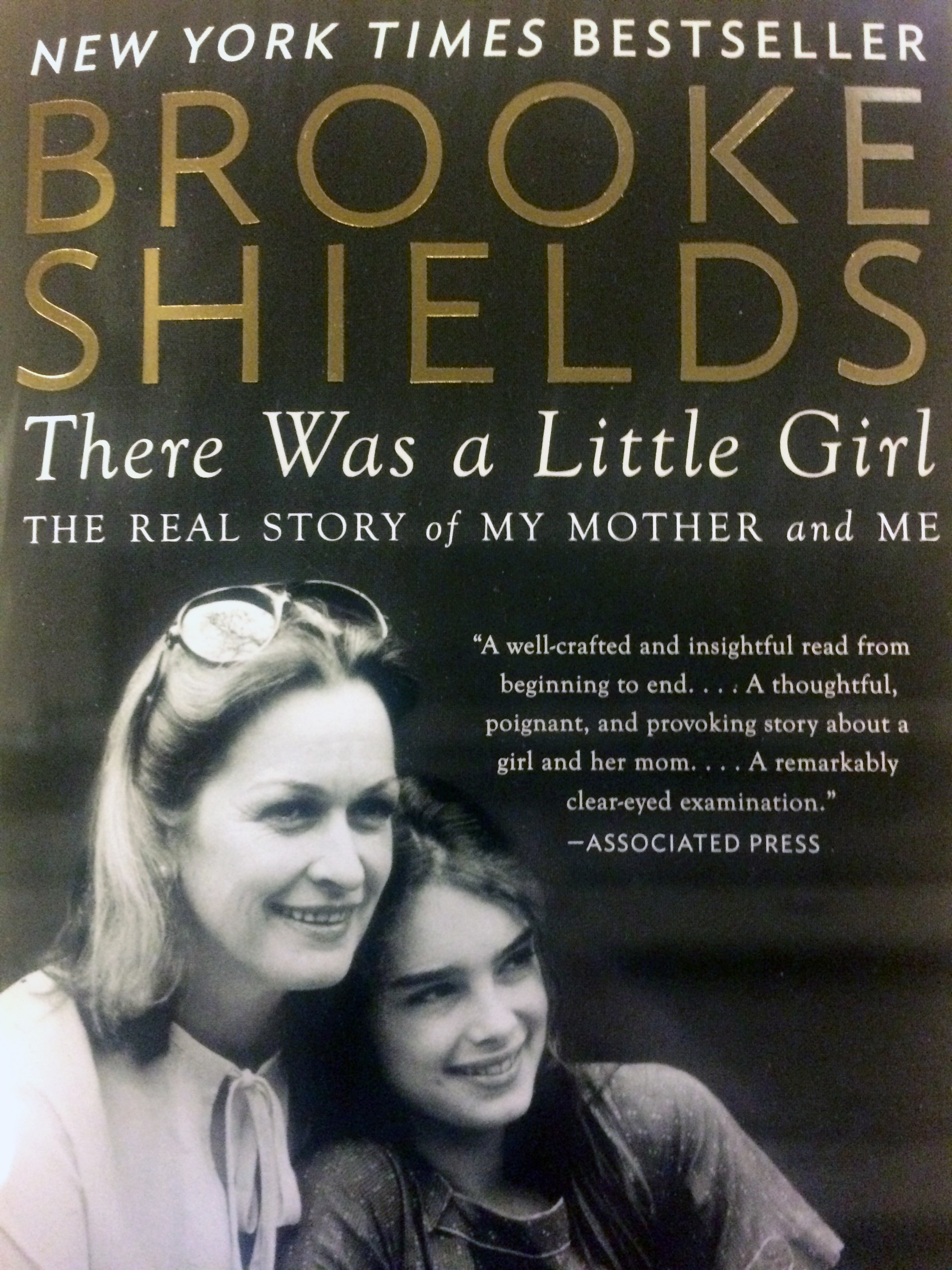WASHINGTON — Brooke Shields was one of our most controversial child stars, respected for her risk-taking roles, beloved for her photogenic gifts, and criticized for her unconventional upbringing.
But when her mother, Teri, passed away in 2012, Brooke was right there by her side, forgiving of any flaws, ready to embrace her better angels, and filled with love for the woman who made her.

Now, after all the mother-daughter speculation, Shields tells her side of the story in the new book “There Was a Little Girl: The Real Story of My Mother and Me.”
“I had no intention of writing about her,” Shields tells WTOP. “But when she died, she was really mistreated by The New York Times, who decided they weren’t going to print my obituary that I paid for. … What they did instead was not print a word I wrote, and wrote a very harmful, angry, negative, harsh critique of a woman that they never met. I was rather infuriated and sort of gutted by it.”
“Once I settled down I thought, you know what? That’s it. I’m tired of people thinking they know the situation, people talking for me, people being desperate for me to be a victim, and I thought … I just feel the need to tell my version.”
That version, “There Was Little Girl,” tracks a most unique relationship that took the entertainment world by storm.
Born in 1965, Shields modeled for Ivory Soap at just 11 months old. By age 14, Shields became the youngest fashion model to appear on the cover of Vogue and posed for Calvin Klein jeans with the controversial line: “You want to know what comes between me and my Calvins? Nothing.” Next time you see Marty McFly mistaken for Calvin by his breathless mother, you’ll realize Shields’ influence.
But her stardom wasn’t merely as a model; she was also a dazzling presence on the silver screen. At age 12, she starred as a child prostitute in Louise Malle’s “Pretty Baby” (1978), two years after a teenage Jodie Foster played a similar role in Martin Scorsese’s “Taxi Driver” (1976). Based on a script by Polly Platt, the film’s music earned an Oscar nomination, while Malle won the Technical Grand Prize at the Cannes Film Festival. Suddenly, Shields was a darling of the art house cinema community.
Two years later, she starred in “Blue Lagoon” (1980), director Randal Kleiser’s anticipated follow-up to his blockbuster smash musical “Grease” (1978). The film earned an Oscar nomination for cinematographer Néstor Almendros and co-star Christopher Atkins earned a Golden Globe nomination, but Shields was given the dubious Razzie Award for Worst Actress.
The following year, Shields delivered a memorable role in “Endless Love” (1981), co-starring Tom Cruise in his film debut and earning Lionel Richie an Oscar nomination for his title-song duet with Diana Ross. The film was further cemented into pop culture by Adam Sandler, whose character admits to a childhood crush on Shields while dancing to “Endless Love” in “Happy Gilmore” (1996).
During this pivotal period, her mother served as her manager and occasional co-star (“Endless Love”) and producer (“Sahara”). Shields admits in her memoir that she viewed these film sets as important safe havens, because she knew her mother would limit her alcohol intake while they were working together. Her mother was a noted alcoholic, forcing Shields to stage an intervention at age 13.
“Where I was a victim was loving her. That’s the part that undid me: the hope. The hope that this alcoholic was going to change. The hope that she’d live a healthier life and be able to be confident. Those are the things that I wanted people to know, that she was doing the best she could, but where she came from and the tools that she had, this was the best. She didn’t have anymore than this.”
In 1983, Shields left it all behind to study French at Princeton University, where she fell for classmate Dean Cain (TV’s “Lois & Clark”). While exploring her independence in college, her once close-knit mother-daughter relationship entered a strained new phase, but the credit and blame is complex.
“People were so insistent on me being an unwilling party to this relationship. I stuck around for 50 years, so my part in all of it needed to be acknowledged,” Shields says. “I was the one who wanted to come back from school because I was so lonely and terrified and had never been away from home before. It was my mother who said, ‘You’ll never forgive yourself if you do this. I know you. You need this experience.’ She wanted me home more than anybody, but she was unselfish about it.”
Through it all, Shields remained a popular favorite, winning five People’s Choice Awards from 1981-1997 for her TV and movie roles. Most memorably, she stormed back into critical acclaim with the hit TV sitcom “Suddenly Susan” (1996-2000), which earned her two Golden Globe nominations for Best Comedy Actress and helped put co-star Kathy Griffin on the map after a brief “Seinfeld” cameo.
https://www.youtube.com/watch?v=J72PhezgfAk
This fruitful period included a high-profile marriage to tennis star Andre Agassi, which only lasted from 1997-1999. In 2001, she married current husband, screenwriter/producer Chris Henchy (“Spin City”). The two currently live in New York City with their two daughters.
Shields says she routinely catches herself looking in the mirror and seeing parts of her mother.
“It happens all the time,” Shields says. “It’s either one thing or it’s your mother. … We come from these people, so I think it’s our job to really try to be honest about it. What do I want to take? What don’t I want to take? My mom was an alcoholic; I’m therefore very sensitive to how alcohol plays a part in my life. … Flip side is we laugh so much. We are silly. But I have rules and regulations. There’s bedtimes and chores and all of that. We didn’t really have that (when I was a kid). … It was bohemian and fun, but my kids need the schedule. They like the schedule. We’re in one place. … So I take a lot of her.”
More than just pouring out her own story, Shields hopes her story is universal.
“My relationship with my kids is so different and yet very similar. … That juxtaposition I felt was a more universal story than many of us would like to admit, and I thought we’re just a template for a very fascinating relationship that exists between a mother and a child. … The mother is this unbelievable archetype. … Somewhere the throughline is, we all have ’em, whether we know them, not know them, have a good relationship, bad relationship, whatever it is, it’s intense.”
Listen to the full interview with Brooke Shields below.







